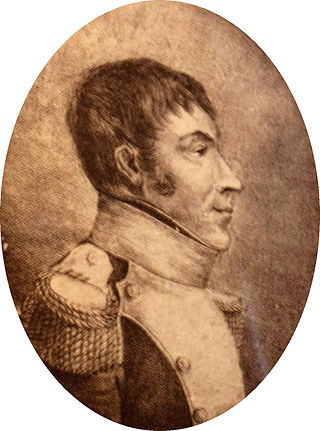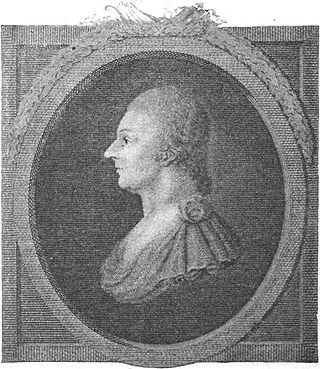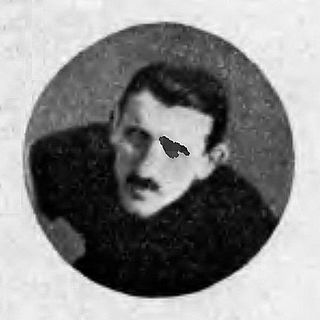
Prince Kazimierz Nestor Sapieha (1757–1798) was a Polish-Lithuanian noble (szlachcic) and one the creators of the 3 May Constitution.

Cyprian Godebski was a Polish poet, novelist and father of writer Franciszek Ksawery. He was an outstanding poet of the so-called "Legions Poetry".

Franciszek Ksawery Godebski was a Polish writer and journalist.
La Tribune des Peuples was a Polish-led French-language radical and romantic nationalist political daily magazine, published in Paris between March and November 1849 - except for a hiatus caused by censorship. The founder and editor-in-chief was Adam Mickiewicz, one of the greatest Polish poets.

Franciszek Ksawery Lampi, also known as Franz Xaver Lampi, was a Polish Romantic painter born in Austria of ethnic Italian background. He was associated with the aristocratic circle of the late Stanisław II Augustus, the last Polish king before the foreign partitions of Poland. Lampi settled in Warsaw around 1815 at the age of 33, and established himself as the leading landscape and portrait artist in Congress Poland soon after Napoleon's defeat in Russia.

Franciszek Ksawery Dmochowski (1762–1818) was a Polish Romantic novelist, poet, translator, publisher, critic, and satirist. Father of Franciszek Salezy Dmochowski.

Franciszek Salezy Dmochowski (1801–1871) was a Polish writer, poet, translator, critic, journalist and publisher. He studied at the University of Warsaw. He took part in the distribution of illegal bibuła press and publications in partitioned Poland.

Franciszek Ksawery Latinik was a Polish military officer, Colonel of Austro-Hungarian Army and Major General of the Polish Army.

Tarczyn is a town in central Poland, seat of Gmina Tarczyn, in the Piaseczno County, in Masovian Voivodeship, about 30 kilometres south of Warsaw. There were 3,869 inhabitants living there in 2004. This town became famous for the eponymous juices that were made there.

Johann Baptist von Lampi the Elder was an Austrian-Italian historical and portrait painter. He settled in the Russian Empire after the third and final partition of Poland, enticed by an extremely generous offer from the Tsar.

Franciszek Ksawery Szymczyk was a Polish track cyclist who competed in the 1924 Summer Olympics. He was born in Lemberg and died in Warsaw.
Franciszek Ksawery Kasparek was a Polish jurist, professor of law and rector of Kraków University, founder of the first chair in international law in Poland, and member of the Polish Academy of Learning in Kraków.
Franciszek is a masculine given name of Polish origin. It is a cognate of Francis, Francisco, François, and Franz. People with the name include:
Dobrogost or Dobrohost is an old Slavic origin given name derived from the elements dobro and gost. Notable people with the name include:

Adam Mickiewicz Monument is a monument dedicated to Adam Mickiewicz at the Krakowskie Przedmieście in the Śródmieście district of Warsaw, Poland. The Neo-Classicist monument was constructed in 1897–1898 by sculptor Cyprian Godebski.

The House of Branicki was a powerful Polish aristocratic family. The family acquired influence in the Polish–Lithuanian Commonwealth in the 18th century.
Encyklopedia Powszechna published by Samuel Orgelbrand in 1859–1868 was one of the first modern Polish encyclopedias.
Adam Franciszek Ksawery Rostkowski was a Roman Catholic prelate who served as Auxiliary Bishop of Lutsk (1700–1738), and a Polish writer and translator.
Ksawery is a Polish given name version of name Xavier, other variation is Xawery, may refer to:











